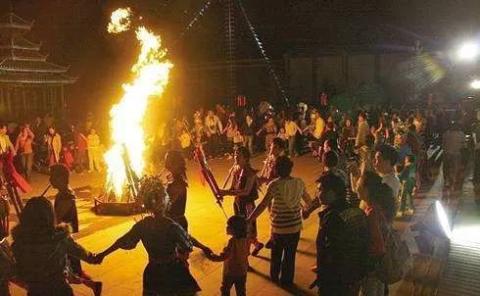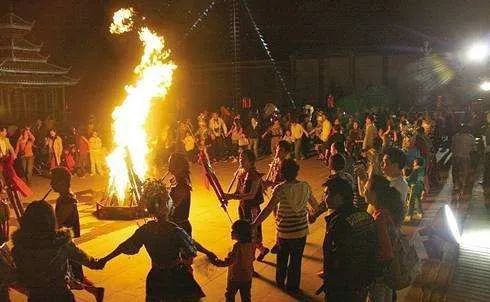
September 2007
Location:Liannan Yao Autonomous County, Qingyuan City, Guangdong Province
Jingxiang’s Travel Notes Chapter 29丨Songs and Dances of the Yao People
In ancient and modern literary works, eating and drinking are often regarded as vulgar things. There are almost no sentences about eating and drinking in Tang poetry and Song lyrics. However, there is one kind of eating and drinking behavior that is favored by all literati, and that is drinking. As a result, wine has entered the elegant hall. It not only represents pride, but also reflects hospitality.
When we went to Sanpai Yao Village, we first watched their brewing process. Although I don’t understand wine, including neither winemaking nor drinking, I can more or less see that they use the most primitive winemaking method, and the rice wine they brew should be what we Yangjiang people call “local cannon.”
The hospitable brewing master handed over a small bowl of their brewed wine, and I took a few sips, and it was right! It's not the smell of essence, but the slightly sour and water-like smell after fermented grains. Natural and pure, it is as simple as the folk customs of the Yao people.
Although this is not a famous scenic spot, it can be regarded as a tourist spot in Liannan. The wine-making process is one of the tourism projects in Sanpai Yao Village. Obviously, traditional wine-making techniques alone are not enough. There must also be some projects that can reflect the characteristics of the Yao people.
If wine culture can reflect the way of hospitality, then dance is the thing that best reflects the characteristics of this nation. As you can imagine, the next step is the dance performed by the young people of the Yao ethnic group in Sanpai Yao Village. On such a small scale, all the performers should be from the village, because this tourist spot is not popular and has not yet reached the level of hiring professional dancers from outside to perform. However, it is precisely because of this that the dances they perform appear authentic.
As Liannan, which focuses on ethnic customs tourism, obviously there is more than just Sanpai Yao Village as an attraction. Sure enough, there is a large bonfire party tonight in Liannan County.
Don’t think that a bonfire party is about lighting a bonfire in the wilderness. When you arrive in the county, it will not be as primitive and authentic as in Sanpai Yao Village, but will become more professional and commercial. They built a large venue specifically to ensure that the bonfire party could be held indoors as scheduled in case of wind or rain.
Young men of the Yao ethnic group lit a bonfire in the dark night and announced the start of the bonfire party. Young men and women wearing Yao ethnic costumes danced a dance that seemed to be not much different from that of Sanpai Yao Village. The difference is that here you will interact with tourists and let you participate.

When the girls brought out the rice wine brewed by the Yao people, my companions pushed me, a non-drinker, to the center of the stage:

Fortunately, there wasn't much wine in the bowl, so I could still dance with the girls after drinking it. The problem is that I don’t know how to dance, let alone the dances of the Yao people, or even ordinary ballroom dances. After finally walking a few laps like others, I hurriedly sat aside. I didn’t dare to try the following program because I was afraid that my clumsy foot would be caught by the bamboo pole:

The companions put on the clothes of the Yao people, bravely looked at the bamboo poles being pinched around their feet, and kept dodging, and they actually finished the song, even though they came out sweating profusely.
Although we know that it is safer to listen to the rhythm with your eyes closed than to stare at the bamboo pole, but no one can avoid looking down at the bamboo pole, because there is such a condition for you to look in front of you, and you unconsciously have an eye for it. rely. Many things are like this. When you always bring a notebook with you to attend lectures, you won't hear much because you think the knowledge you need has already been written in the notebook. However, if you put aside the notebook, what you hear will stay in your mind immediately instead of in the notebook that will probably not be looked at in the future. I write so much because I went on a trip with the teachers this time. .
Preview of the next article: I have been to Fujian three times. Apart from Gulangyu Island, the ones that impressed me most were Jimei, the hometown of overseas Chinese leader Tan Kah Kee, and Jiuqu River in Wuyi Mountain. I will write about "Xingyao Jimei" first in the next article.
